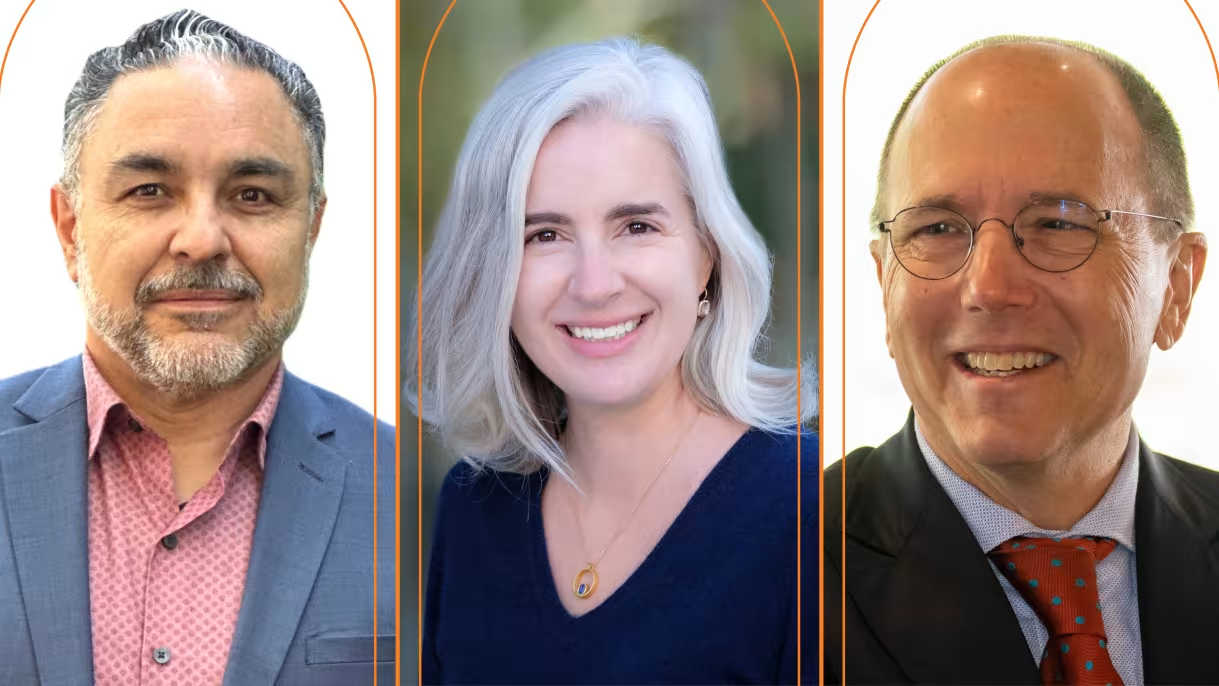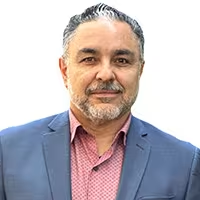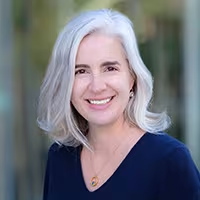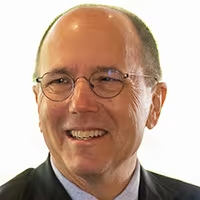

Industry Insiders: Princeton SPIA Alumni in Social Entrepreneurship
For more than 90 years, alumni from the Princeton School of Public and International Affairs (Princeton SPIA) have had meaningful careers in a multitude of industries, perhaps none more so than the federal government. But as government cuts reduce opportunities for a new group of civil servants, Princeton SPIA alumni have stepped up to offer everything from advice to job references for their fellow Tigers.
Three alumni with prominent careers in the social entrepreneurship space — Dennis Whittle MPA ’86, co-founder and CEO of GlobalGiving and Feedback Labs; Jose Quinonez MPA ’98, founder and CEO of the Mission Asset Fund; and Denise Dunning MPA ’01, co-founder and executive director of Rise Up Together — came together to share why they chose to work in this sector and how the lessons learned in a SPIA classroom translated to the real world, and offer guidance to future graduates seeking a similar career.
Princeton SPIA: Broadly, what interested you in working in the social entrepreneurship field?

Jose Quinonez: My interests have always been to serve immigrant communities — those pushed to the margins and living in the shadows, the most vulnerable in our society. I found that the nonprofit social entrepreneurship field was the best way to work with these overlooked communities. I founded the Mission Asset Fund (MAF) to help low-income, undocumented families improve their financial lives, allowing me to combine my personal and professional goals. Through MAF, I have the freedom to challenge conventional wisdom and outdated narratives about the people we serve. MAF is a platform for innovation —where I can create technology and financial solutions and put them into service for low-income families, demonstrating better ways forward.

Denise Dunning: I’ve always been passionate about working to improve the rights of marginalized communities around the world. After I graduated from Princeton, I moved to California to work at the Packard Foundation, where I focused on global health and development. I learned a lot working in philanthropy, but missed doing hands-on work in the field, so I moved to Guatemala to start a new initiative focused on youth leadership and reproductive health. I discovered that I loved the opportunity to be creative, build a team, try new ideas, and grow something from nothing. I worked harder than I ever have in my life and had a total blast doing it. I had never thought of myself as a social entrepreneur, but discovered that I thrive when I have the freedom to set my own course to do the work that I’m passionate about to create sustainable social change. Those early start-up days laid the foundation for the organization I later launched, Rise Up Together, which leverages a systems change model to advance gender and racial equity, economic mobility, and environmental sustainability by investing in frontline local leaders and organizations advocating for policy change.

Dennis Whittle: I had a great early career in official aid organizations, primarily the World Bank, but also with short stints at the Asian Development Bank and USAID. The 15 years I spent in those organizations gave me insights into what official agencies could do, but also the constraints they faced in terms of just doing what made sense. Over the years, I met many amazing people with great ideas for improving their communities, but they lacked access to official aid channels. I decided to leave that world to try to create a new way to match financial resources and expertise with needs in the developing world. That effort became GlobalGiving, which has helped 40,000 community groups around the world to raise over $1 billion from two million individual donors and 600 corporations and foundations. After that, I went on to create several more organizations, including Feedback Labs, which helps aid agencies, foundations, non-profits, and government agencies better listen to the people they seek to serve.
PS: How did Princeton SPIA prepare, or alter your preparations, for this field after graduation?
DD: Princeton SPIA gave me the chance to learn from the best practitioners and academics in public policy and global development. I especially loved classes taught by professors who had been working in their fields for years and were able to bring their own lived experience to our academic discussions, like Karen McGuinness’s classes on gender and development.
JQ: At Princeton, I chose to focus on international development, where I gained extensive knowledge about poverty and inequality. Recognizing that those on the margins of U.S. society are truly transnational communities, I gained a clearer understanding of their strengths and opportunities from an international perspective. With clear theoretical frameworks and in-depth analysis from Field II courses, I became more confident in advocating for new and improved ways of working to enhance the lives of families often overlooked.
DW: Princeton also prepared me for a fruitful career at the World Bank and USAID, where I worked with senior government officials for many years in the Philippines, Indonesia, and Russia. That gave me the experience, insights, networks, and resources that were crucial to the success of my social ventures.
DD: The network has also been invaluable, both personally and professionally. Charlotte Ellertson MPA ’93 offered me my first real job during grad school and was an incredible social entrepreneur, leader, and mentor to me. And I met some of my dearest lifelong friends at SPIA, many of whom are social entrepreneurs themselves.
PS: What are some ways that Princeton SPIA graduates could better their communities via social entrepreneurship?
JQ: Being a social entrepreneur is not for the faint of heart. The field offers little structure, career paths are unpredictable, and success is never guaranteed. It is one of the most challenging areas to navigate. However, when people appreciate and accept its complexities and challenges, it can become one of the most exciting and fulfilling career paths, as it aligns with their innate desire and drive to create social change.
DD: It is a powerful way to develop new solutions to entrenched social problems. Before attending SPIA, I had served as a Fulbright Fellow at the InterAmerican Development Bank in Tegucigalpa, Honduras. Through this experience, I quickly learned that traditional global development approaches often disregard the priorities and needs of local communities, and in many cases, do more harm than good. So when I left Princeton, I knew that I wanted to develop a different approach to global development. As a social entrepreneur, I didn’t have to repeat the top-down strategies that I’d seen were ineffective and instead could create a model that approaches global health and development differently, centering and investing in local leaders and organizations to create their own solutions to the challenges they face.
JQ: In other words, it's a path you forge based on your vision and creativity. The field offers a blank slate of possibilities for you to create your career path and make a positive change in the world. It’s not a field that will provide you with a job or a position to hold temporarily; social entrepreneurship is your life’s work to make the world a better place in whatever way you see it. Social entrepreneurship is a calling.
DW: Over my four decades of experience, I have been struck by the importance of a certain type of mentoring and advising. SPIA graduates have an extremely high level of academic preparation as well as professional experience that we often take for granted, but when we work together — side by side — with community leaders and community groups, we can help them turbocharge their own abilities and effectiveness. Just this week, I helped local leaders here in Jacksonville leverage principles I learned from Professor Uwe Reinhardt in 1985. The key is to see local leaders as peers, not students, since the learning goes both ways.
PS: What are some initiatives that you’re proud of that benefit the community you serve?
DW: At the World Bank, some colleagues and I created an event called the Development Marketplace that allowed community leaders from around the world to come to headquarters for a day and pitch their ideas for potential funding. At the end of the day, we awarded $5 million to 44 groups out of 300 finalists. A woman from South Africa came up to me afterwards and said, “We did not win.” I replied, “It’s a competition; not everyone can win. Maybe we will do it again in a few years.” She stared at me and said, “We can’t wait for years. We need funding now. I think we should be allowed to come and pitch our ideas here every day.” I shrugged and said, “Sorry.” But later that night, I thought to myself, “Maybe she is right. Why shouldn’t community leaders have ongoing access to funding?” Six months later, two of us resigned from the Bank and launched GlobalGiving to respond to that woman’s request. Now, community groups can pitch their ideas 24 hours a day, 365 days a year to literally a million funders.
DD: I’m super proud of the work we do at Rise Up Together to improve the lives of girls, women, and allies here in the U.S. and around the world. We find impactful local leaders and organizations that are already doing important work to improve health, education, and economic outcomes in their own communities, and provide them with training, funding, coaching, and support to create larger scale impact. Since our launch in 2009, Rise Up Together’s powerful network of over 1,000 leaders has successfully advocated for 218 new and improved laws and policies positively impacting 172 million people around the world. Rise Up leaders are developing solutions to some of our world’s toughest challenges — improving Black maternal and newborn health outcomes in the U.S., advocating for girls’ access to education in Kenya, securing women’s economic rights and land tenure in India, developing climate solutions in Nigeria, ending child marriage in Guatemala, and so much more. I’m continually inspired by the vision, drive, and impact of Rise Up’s leaders — their courage and determination makes me believe that change is possible and gives me hope for our collective future.
JQ: MAF has provided over $110 million in zero-interest loans and emergency grants to more than 87,000 people since its founding in 2007. One of our key programs is Lending Circles, a credit-building loan program rooted in the time-honored tradition of individuals lending to and saving with one another. We transformed this informal practice into a formal system that reports loan activity to credit bureaus, helping participants improve their credit scores. Additionally, we developed several immigration-related loans to assist clients in naturalization, obtaining green cards, applying for DACA, or seeking temporary protected status. Through these products, we are demonstrating that clients perform better than industry repayment rates when loans are designed around their needs, with their circumstances at the forefront of innovation.
PS: What advice do you have for Princeton SPIA students who might be interested in pursuing social entrepreneurship?
DD: There are many, many ways to pursue a career in social entrepreneurship, and my advice is to follow your gut, even if it’s scary. Because for every person who believes in your mission, there will be 20 who don’t — so get ready for the long game and don’t give up. When I graduated from SPIA in 2001, I was warned that I was committing “career suicide” by moving to California and that I should move to New York or D.C. if I wanted to work in global development. And while it’s true that there weren’t many globally-focused jobs in the Bay Area, it just meant that I needed to be creative to make it work.
JQ: Know your why — your purpose — your reason for pursuing a professional career in this field. Have a clear vision of what you want to create and the change you wish to see in the world because that will help you get through moments of doubt, to work through pitfalls and barriers you’ll inevitably face along your journey. Your purpose is your North Star. Also, realize that if you achieve something significant, the world is watching and learning from you. Remember that all change begins at the margins and moves toward the center if it proves to be valuable and successful. That’s when real change happens for everyone, and it takes a social entrepreneur to show the way forward.
DW: You can pursue social entrepreneurship in many ways. At one extreme, you can create a new organization. This is very hard, with lots of — often severe — challenges and setbacks along the way, but it is also rewarding when it works. At the other extreme, you can find an existing organization and become a donor or board member. In between would be joining an existing organization as a staff member. In terms of timing, you can start early or late. In my case, I was nearly 40 years old before I became a social entrepreneur. One other thing: Social entrepreneurship is hard, so make sure you do it with people you respect and like to work with.
DD: Being a social entrepreneur gives you the chance to live your values, work to make a positive difference in the world, develop new strategies and solutions, and be your own boss. Even though the path is often far less clear than more traditional careers, I’ve never regretted the journey.

